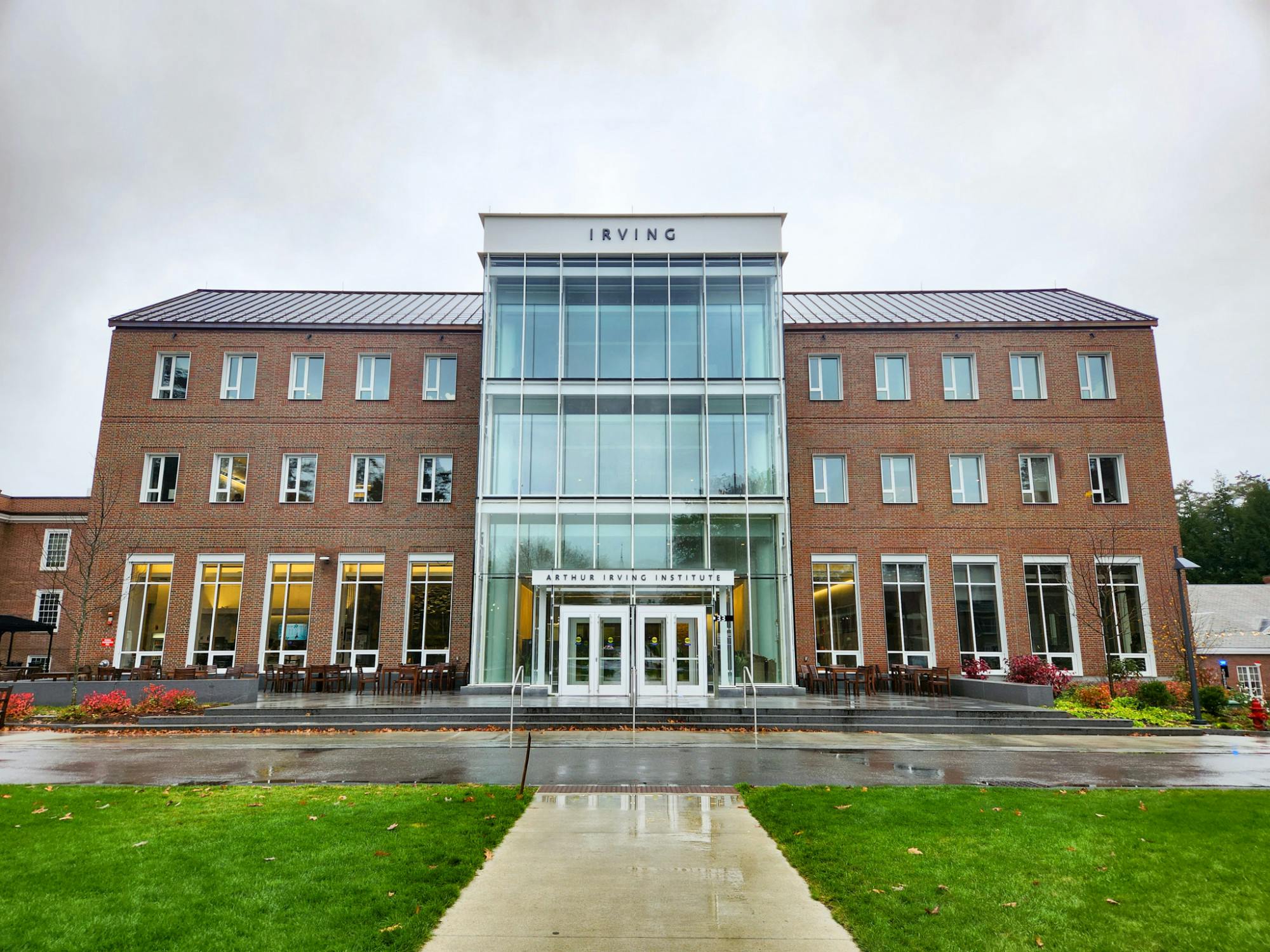Two Dartmouth buildings — the Irving Institute for Energy and Society and Anonymous Hall — received Leadership in Energy and Environmental Design Certifications by the United States Green Building Council, Dartmouth News announced on Aug. 22. The Irving Institute earned a LEED Platinum certification, while Anonymous Hall earned a LEED Gold certification.
The honors, bestowed to the Irving Institute and Anonymous Hall on July 16 and Aug. 23, respectively, come amid the College’s renewed push toward sustainability. On Earth Day 2024, College President Sian Leah Beilock announced the Dartmouth Climate Collaborative, which will invest more than half a billion dollars into building renovations to reduce campus emissions by 100% by 2050.
In a written statement to The Dartmouth, senior project manager and LEED Accredited Professional registered architect Chad Morig, who oversaw the construction of Anonymous Hall, explained that the LEED certification system assesses a building project’s sustainability measures. The LEED program was launched in 2000 by the Green Building Council to recognize buildings with highly sustainable designs, according to the Green Building Council website. As of 2023, there were more than 105,000 LEED-certified buildings in the United States.
“It’s a points-based system that includes … categories [such] as location and transportation, sustainable sites, water efficiency, materials, indoor environmental quality as well as an open category for innovative solutions,” Morig wrote. “The category weighted the heaviest … is energy and atmosphere, which focuses on optimization of energy use by the building after the project is completed.”
The LEED Platinum certification earned by the Irving Institute is the highest status that the Green Building Council awards, according to its website. Dartmouth is home to two other LEED Platinum-certified buildings — the Class of 1978 Life Sciences Center, which was recognized in 2011, and the Class of 1982 Engineering and Computer Science Center, which was recognized in 2023. Additionally, several Dartmouth buildings are LEED Gold-certified, including the Black Family Visual Arts Center, recognized in 2012, Fahey-McLane Hall, recognized in 2006 and the McLaughlin cluster residence halls, recognized in 2006.
The Irving Institute earned 85 out of 110 possible points on the Green Building Council’s scorecard, including perfect scores in “Innovation,” “Integrative Process Credits” and “Regional Priority Credits.” It also received high scores for its proficiency in “Water Efficiency,” “Material and Resources” and “Indoor Environmental Quality,” according to engineering professor and Irving Institute interim faculty director Geoffrey Parker.
Some features that contributed to the Irving Institute’s new certification include sustainably harvested wooden furniture, motion-sensor lighting, radiant flooring and natural lighting, with 91% of Irving’s workspaces receiving natural lighting, Parker explained.
Parker said the LEED certification is an “incredibly important” way to “[drive] change.”
“I think about LEED as a mechanism by which to drive technological change that is necessary to reduce [Dartmouth’s] energy impact,” he said.
Dartmouth Sustainability Office assistant director Marcus Welker said the LEED certifications demonstrate the College’s “efforts to reduce our buildings’ energy consumption,” which will be a “significant part of what it takes to meet our greenhouse gas and climate-related goals as an institution.”
According to Morig, LEED certifications are one of the targets of Dartmouth’s High Performance Buildings Energy Policy, which “sets targets for the projects of a certain scale.”
These certifications are “one way to exhibit the College’s continued commitment to sustainability,” Morig said.
“Buildings produce approximately 40% of the total CO2 emissions worldwide,” Morig wrote. “Each building certification is significant as it represents a standardized and commonly considered metric for bettering the sustainability of the built environment.”

Tess Bruett is a ‘27 from Milwaukee, Wisconsin. She is studying History and hopes to eventually go to law school. In her free time she enjoys hiking, working out, and reading!




